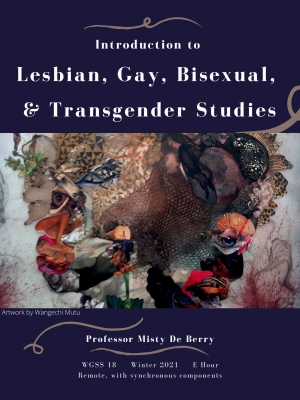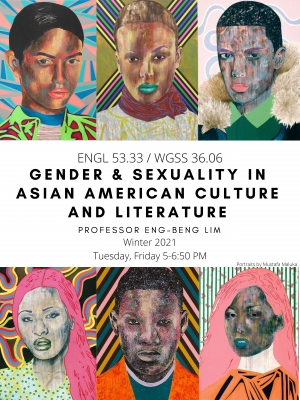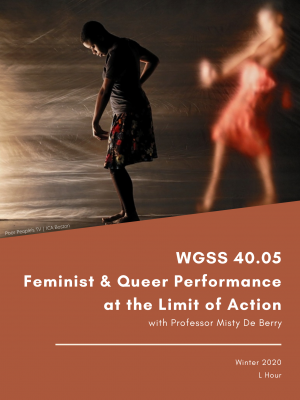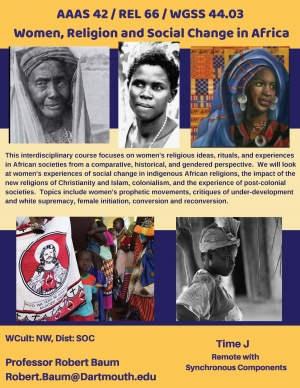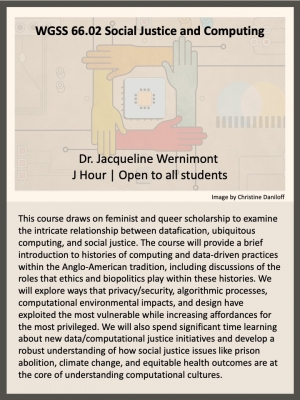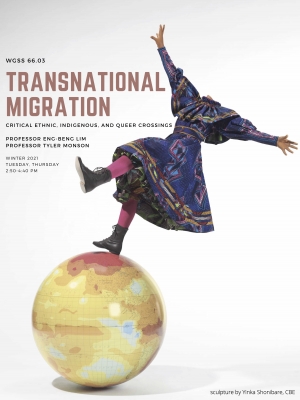WGSS 10 Sex, Gender and Society
How has current thinking about sex, gender, and sexuality formed our experiences and understandings of ourselves, the world we inhabit, and the world we envision? This course investigates basic concepts about sex, gender, and sexuality and considers how these categories intersect with issues of race, class, ethnicity, family, religion, age, and/or national identity. The course also considers the effects of sex, gender, and sexuality on participation in the work force and politics, on language, and on artistic expression. In addition to reading a range of foundational feminist texts, materials for analysis may be drawn from novels, films, the news, popular culture, and archival resources. Open to all students. Dist: SOC; WCult: CI.
Professor Douglas Moody
C Hour, Remote, with synchronous components
